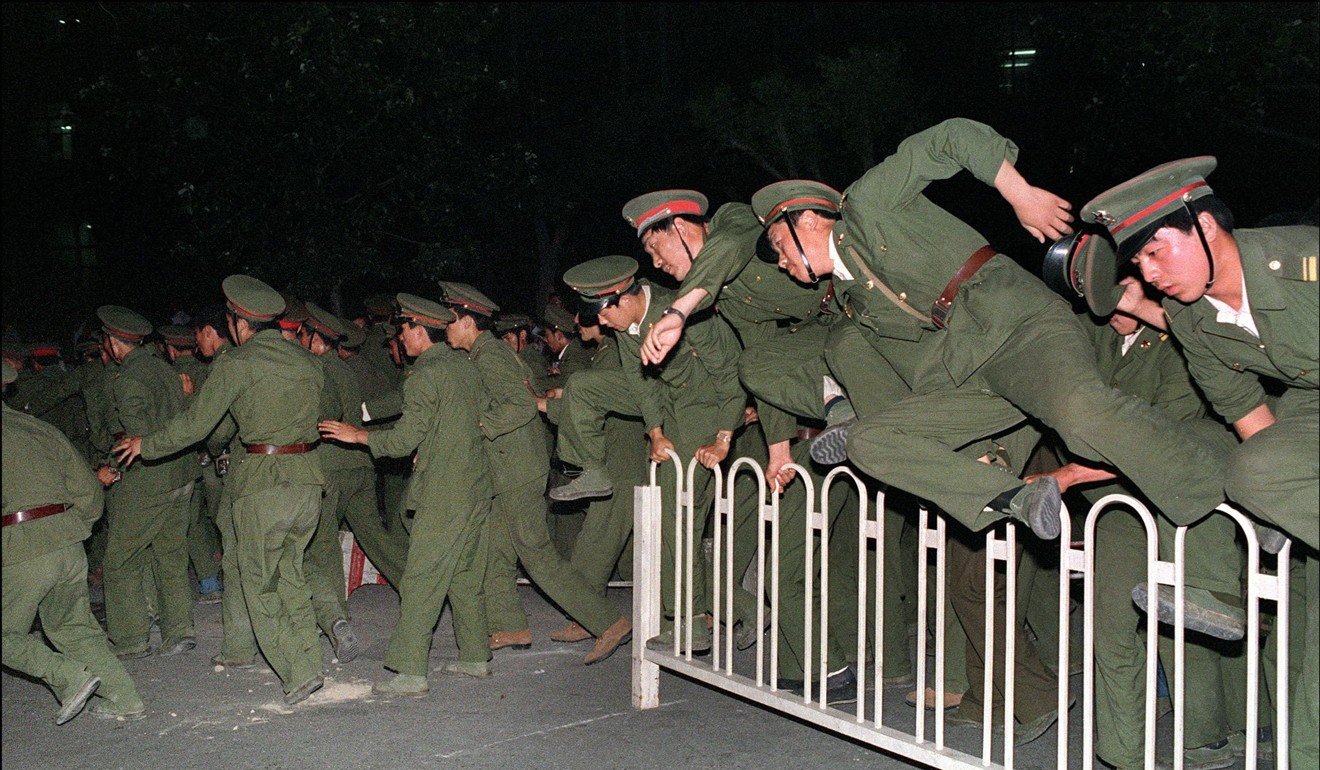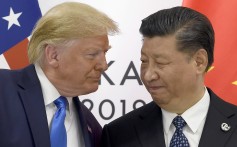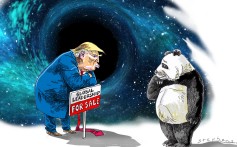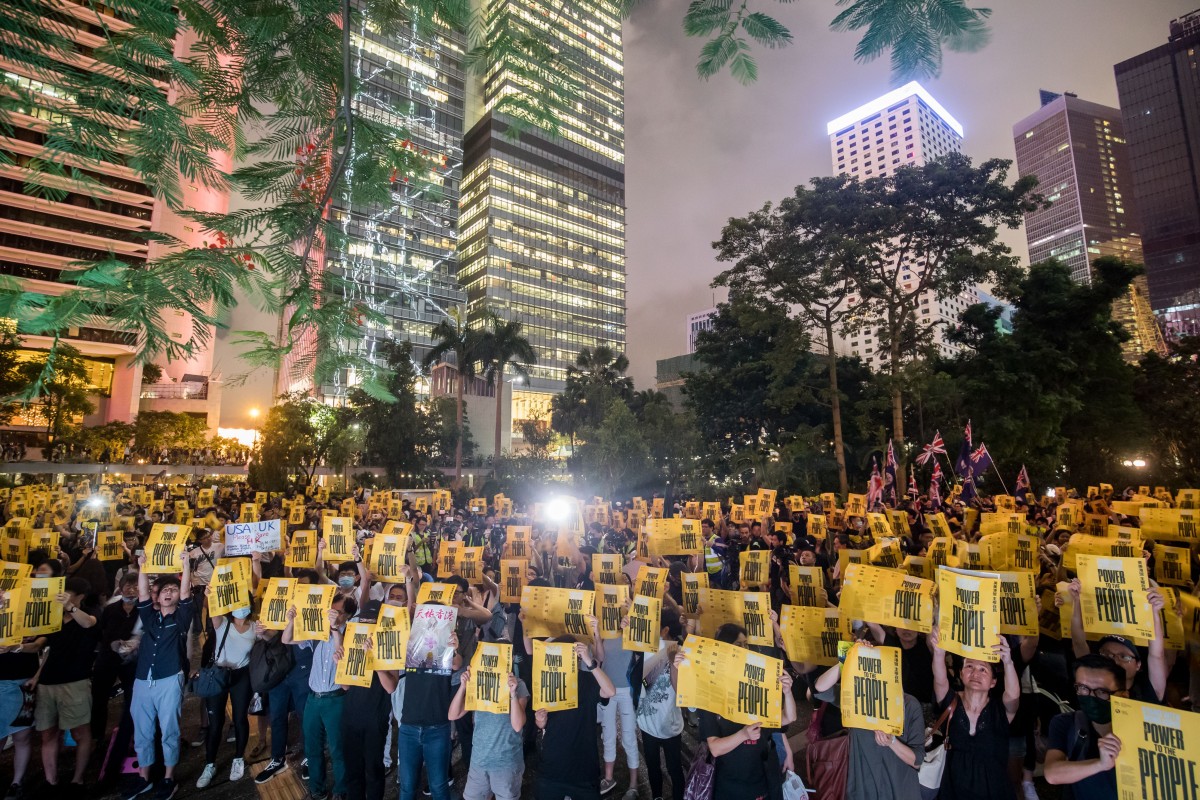China will think long and hard before sending in the PLA – it needs the Hong Kong ‘experiment’ to work, and it wants Taiwan back
Demonstrators attend a rally at Chater Garden in Hong Kong on August 16. Photo: Bloomberg
There has been much hand-wringing in Hong Kong in recent days over the danger that impatient hardliners in Beijing will detonate the nuclear option, either unleashing the
on pro-democracy protesters or trundling in thousands of People’s Armed Police, who have been amassing in a sports stadium in
.
Commentators have agreed that as
have become more violent and as
to quell the violence have proved ineffective, so the danger of mainland intervention has risen.
They have also agreed that the apparent cluelessness of the
over how to calm the mood has raised the likelihood that mainland leaders will take charge.
But in the full knowledge that many will call me naive, I think we are many steps short of anyone on the mainland pressing those “nuclear buttons”. The danger cannot absolutely be ruled out, but it is a much more distant danger than many are now breathlessly discussing.
There are many reasons for Beijing to think not just once, but many times, before taking such steps. Some of these reasons have already been discussed, but a few of the most important seem not to have occurred to most commentators.

PLA soldiers leap over a barrier at Tiananmen Square in Beijing on June 4, 1989. Photo: AFP
First, many have looked back to
in 1989, remembered for the tragic brutality with which pro-reform students were handled when the decision was eventually made to clear the square. But much is forgotten of the protracted efforts to find common ground with the students.
Not only did some of the country’s most senior leaders, including
, spend time in the square talking to student leaders and seeking common ground, but
PLA soldiers were reluctant to move against the students.
As a “people’s army”, they were unwilling to move against China’s own people. When finally the brutal attack came, it was at the hand of troops brought in from the country’s interior provinces who were ignorant of the student movement.
Yes, bringing thousands of People’s Armed Police and their hardware down to Shenzhen and talking of
in the Hong Kong protests greatly ups the ante and makes a military intervention plausible. However, there is a considerable difference between rattling sabres and using them. There is still time in Hong Kong for violent protesters to be reined in, and for public support for the
of the mass of demonstrators to remain firm.
Second, Beijing is fully aware of how keenly it needs Hong Kong to perform well, and how the valuable differences intrinsic to the “one country, two systems” formula need to be protected – not just for Hong Kong, but for mainland companies too.
Hong Kong today may only account for 3 per cent of
, compared with around 18 per cent in 1997, but its role as the connector between Chinese companies and the outside world remains indispensable.
China today may have many good accountants, lawyers and capital market experts, but only in Hong Kong are there professionals who can manage China’s business linkages with global markets.
A Chinese company listed on the Shanghai Stock Exchange can use local auditors, lawyers and financiers to support its domestic businesses, but the minute that company seeks an
or a foreign acquisition, or wants to raise funds in foreign currencies in foreign capital markets, that company needs to turn to Hong Kong professionals.
China’s entire economy would suffer very materially if heavy boots were to trample all over Hong Kong – not least with regard to development of the ambitious
.
Third, and perhaps most important, as China moves to forge a more significant role in the global economy, Hong Kong stands as proof of China’s commitment to joining and playing a constructive role in the market-driven world economy that has, since 1950, brought
out of poverty (including, of course, in China itself).
Beijing has successfully reintegrated Hong Kong into China while maintaining, through the “one country, two systems” formula, Hong Kong’s free market, rule of law and freedom of expression – all in sharp contrast to China’s
foundation, but respected and valued by
and those who have succeeded him as a model on which they can drive their own economic liberalisation.
China, as Hong Kong’s sovereign, has demonstrated its ability and willingness to learn lessons from the West’s economic systems and to become a constructive contributor to their development.
In this respect, China’s behaviour over the past four decades contrasts impressively with that of Russia, which even today remains sceptical about – and on the margins of – the global economy and its post-1950 economic institutions.
Hong Kong remains an iconic symbol of China’s serious intent to join, learn from and help to develop the world’s principal institutions, ranging from the International Monetary Fund, the World Bank and the World Trade Organisation to the World Health Organisation – and even
.
To undermine international trust in “one country, two systems” would therefore not just ruin Hong Kong, it would fundamentally undermine the credibility of China’s claims to wanting to play a constructive role in the global economy.
It would also forever undermine any hopes of peacefully recovering
.
Hong Kong needs always to remember that China’s
cautious leaders have, over decades, developed and reformed the economy on the back of thousands of
. Successful experiments have been left to grow and have been copied. Unsuccessful ones have quietly disappeared and been forgotten.
Hong Kong is one such experiment and has so far proven indispensable to the country’s growth as a global economic power.
What is happening now is putting that experiment in jeopardy. Beijing is likely to go to great lengths to protect the success of the Hong Kong experiment, and it probably recognises the harm it would do itself by bringing its brutish force to bear. But if we in Hong Kong want to keep that force at bay, we must persuade
to abandon violence and wilful economic destruction.
David Dodwell researches and writes about global, regional and Hong Kong challenges from a Hong Kong point of view












Comments